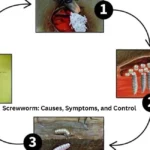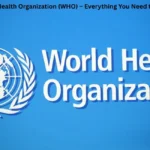Diarrhea is one of the most common health issues people face in the United States, affecting millions each year. It happens when the body produces loose stools and frequent watery bowel movements, often leaving a person weak and uncomfortable. In many cases, diarrhea is a short-term problem linked to a stomach flu or mild infection, but sometimes it can point to more serious digestive problems.
Conditions like gastroenteritis, food reactions, or even stress may trigger episodes. While mild cases often pass on their own, severe ones may lead to dehydration and require medical care. Understanding its causes, symptoms, and treatment is vital for fast recovery.
What is Diarrhea and Why Does It Happen?

Diarrhea means passing loose stools more often than usual. Doctors classify it into acute diarrhea when it lasts a few days and chronic diarrhea if it continues for weeks. Your body usually reacts this way when it wants to flush out bacteria, viruses, or irritants from the gut.
In the USA, stomach flu and gastroenteritis are the most frequent triggers. Sometimes, it’s a sign of an intestinal infection or other serious illness. Even stress or food allergies may cause it. If you’ve ever asked, “What causes diarrhea in adults?”, the answer depends on what your body is fighting at that moment.
Common Symptoms of Diarrhea You Shouldn’t Ignore

Mild diarrhea often comes with frequent bowel movements and a stomach upset. Some people also feel cramps, bloating, and nausea. Infections may lead to fever, headache, or even vomiting.
You should worry about diarrhea when you notice blood in your stool, severe weakness, or constant watery stools. The biggest risk is dehydration, which may leave you dizzy, confused, or with dry skin and mouth. Recognizing these red flags early can prevent complications.
Causes of Diarrhea: From Food to Infections
In the USA, food poisoning is a leading reason people suffer sudden diarrhea. Eating undercooked meat, drinking unsafe water, or cross-contaminated meals often bring on bacterial infection like Salmonella or E. coli.
Other cases are linked to viral diarrhea such as norovirus, which spreads quickly in schools and care centers. Antibiotics can also disturb gut bacteria, leading to stomach problems. In some patients, conditions like irritable bowel syndrome (IBS) or Crohn’s disease cause repeated episodes. Even stress or anxiety may trigger the gut, making people ask, “Can stress cause diarrhea?”
How to Diagnose Diarrhea Properly

Doctors in the USA usually diagnose diarrhea by asking about your medical history and recent food intake. They may also check travel records since traveler’s diarrhea is common for people returning from abroad.
In more serious cases, stool samples help find parasites or intestinal infection. Sometimes, blood tests or colonoscopies are used, especially for chronic diarrhea that refuses to go away. Proper testing ensures patients get the right care instead of guessing remedies.
Best Foods to Eat When You Have Diarrhea
The best foods for diarrhea recovery are plain, gentle, and easy to digest. Doctors often recommend the BRAT diet—bananas, rice, applesauce, and toast. These foods bind the stool and give your stomach a break.
Clear soups, broths, and oral rehydration solutions keep you hydrated. Yogurt with live cultures and probiotics restore healthy gut bacteria, speeding up recovery. If you’ve wondered, “How to stop diarrhea fast naturally?”, the answer is hydration, rest, and eating these mild foods.
Foods to Avoid During Diarrhea Episodes

Eating the wrong meals can worsen diarrhea. Avoid greasy, fatty, or fried food, as they are hard to digest. Spicy dishes irritate the intestines, making the condition worse.
Dairy products except yogurt, caffeine, and alcohol should also be skipped until recovery. Artificial sweeteners found in diet sodas or gum often trigger stomach upset as well. Staying mindful of these triggers speeds up healing.
Medical Treatments for Diarrhea Relief
For many Americans, over-the-counter drugs like loperamide (Imodium) or bismuth subsalicylate (Pepto-Bismol) bring quick relief. These control frequent bowel movements and ease cramps.
However, treatment for severe diarrhea often requires stronger action. If diarrhea is linked to infection, antibiotics or antivirals may be prescribed. In hospitals, IV fluids help fight dangerous dehydration. Natural remedies are fine for mild cases, but a doctor should handle stubborn ones.
How to Prevent Dehydration from Diarrhea
Dehydration is the biggest threat. Without enough fluids, organs can shut down. Doctors suggest small, frequent sips of oral rehydration solutions or homemade mixes of water, sugar, and salt.
Electrolyte drinks, coconut water, and clear broths restore lost minerals. A person should always watch for signs like dry lips, dark urine, or dizziness. Knowing when to worry about diarrhea depends mainly on how well you’re staying hydrated.
Diarrhea in Children: Special Care Tips

Diarrhea in children vs. adults is far more dangerous because kids lose fluids faster. Infants may become weak or lethargic quickly, and their soft spots may sink if dehydration worsens.
Parents should use oral rehydration fluids and consult doctors quickly. Vaccines like the rotavirus shot help protect against viral diarrhea. Never wait too long if your child’s condition worsens, as complications can rise fast.
When to Seek Emergency Help for Diarrhea
Emergency care is needed when diarrhea lasts more than two days in adults, or when children get weak and stop urinating. Severe pain, blood in stool, and a fever above 102°F are all warning signs.
People with weak immunity, seniors, or those with existing health issues should not delay treatment. In such cases, asking “Is diarrhea contagious?” matters too, since some infections spread easily to family members.
Case Study Table: Common Types of Diarrhea in the USA
| Type of Diarrhea | Typical Cause | Duration | Treatment Approach |
|---|---|---|---|
| Acute diarrhea | Food poisoning, viral bug | Few days | Hydration, BRAT diet, OTC meds |
| Chronic diarrhea | IBS, Crohn’s, medications | Weeks or longer | Medical evaluation, diet changes |
| Traveler’s diarrhea | Contaminated food, unsafe water | 3–5 days | Oral rehydration, sometimes antibiotics |
| Viral diarrhea | Norovirus, rotavirus | 2–3 days | Rest, fluids, hygiene |
| Bacterial infection | Salmonella, E. coli | Several days | Antibiotics if severe |
FAQS
What will stop diarrhea?
Staying hydrated and eating bland foods often helps; in some cases, over-the-counter medicine like Imodium can stop diarrhea quickly.
What to eat when you have diarrhea?
Stick to the BRAT diet—bananas, rice, applesauce, and toast—along with clear soups and probiotics for gut balance.
How do you recover from diarrhea?
Rest, drink fluids with electrolytes, and reintroduce light meals slowly to regain energy and heal your digestive system.
What is the best medicine for diarrhea in adults?
Loperamide (Imodium) and bismuth subsalicylate (Pepto-Bismol) are commonly used for adult diarrhea relief.
How long can diarrhea last?
Acute diarrhea often lasts 1–3 days, while chronic diarrhea may continue for weeks and needs medical evaluation.
What drink stops diarrhea?
Oral rehydration solutions, electrolyte drinks, and clear broths work best to replace lost fluids and minerals.
Why do I have diarrhea but not sick?
Stress, food intolerance, or certain medicines can cause diarrhea even without feeling sick or feverish.
What are the first signs of food poisoning?
Nausea, vomiting, stomach cramps, and sudden diarrhea are the earliest indicators of food poisoning.
What kills the stomach virus?
There’s no quick cure, but hydration, rest, and time allow your body’s immune system to fight the virus.
Why am I having watery diarrhea every 10 minutes?
This may signal a severe infection, food poisoning, or dehydration risk, so medical help is needed immediately.
What are the worst foods to eat with diarrhea?
Avoid fried, greasy foods, dairy (except yogurt), caffeine, alcohol, and spicy meals as they worsen symptoms.
Is lemon water good for diarrhea?
Lemon water may soothe digestion slightly, but it should never replace hydration with electrolytes or medical care if symptoms persist.
Conclusion
Diarrhea: Causes, Symptoms, and Treatment matter because it’s more than just an upset stomach. While many cases improve on their own, some require urgent care. Practicing safe food handling, drinking clean water, and getting vaccines are smart ways to stay protected.
If you’ve ever wondered, “How long does diarrhea last?”, the truth is it depends on the cause. A simple home remedy for diarrhea may be enough for mild cases, but treatment for severe diarrhea must come from a doctor. Protecting your health starts with listening to your body and acting early.
Understanding PCOS: Causes, Symptoms, Treatments & Diet




